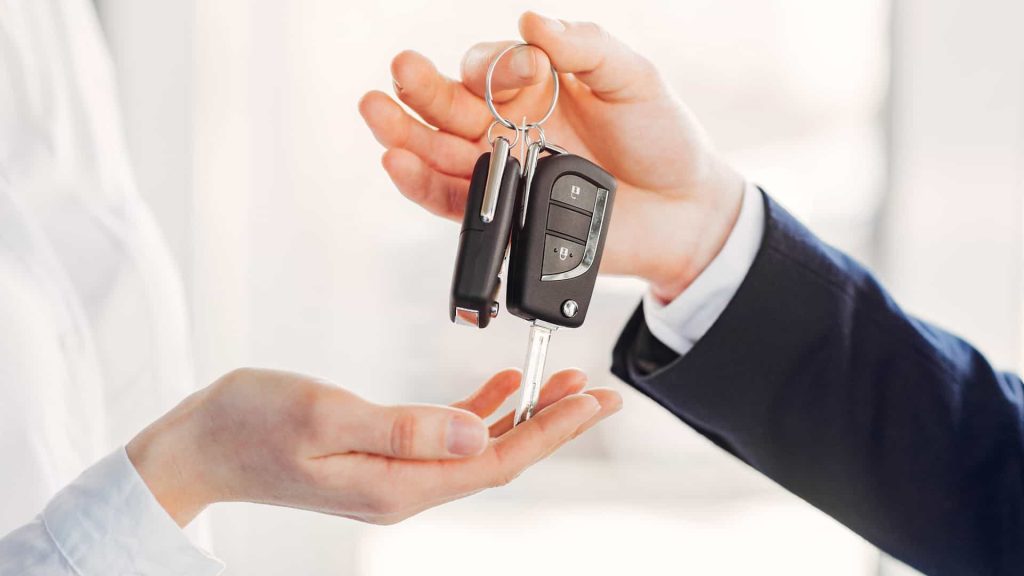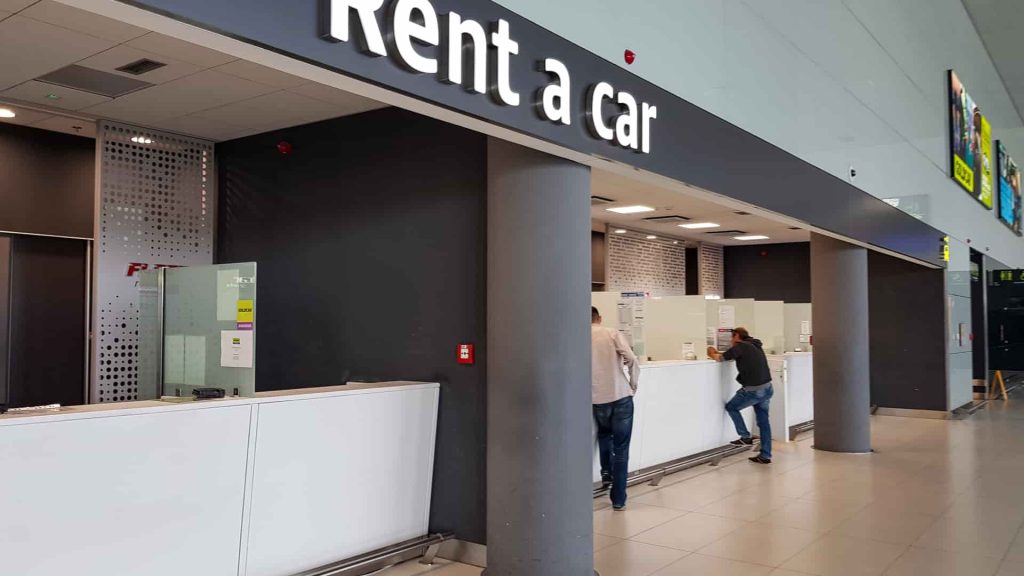
Ever wondered what it feels like to navigate the same streets that have inspired some of the world’s greatest carmakers? Or to discover hidden gems that only locals know, far off the well-trodden tourist trails? When you rent a car in Germany isn’t just about mobility; it’s about unlocking a new level of travel experience.
We’re not just giving you a how-to guide; we’re handing over the keys to a realm of new possibilities. From decoding the enigma of the Autobahn to unearthing rental secrets that can save you Euros, we’ve got insights that transform the ordinary into the extraordinary.
So, are you ready to shift gears and journey into the soul of Germany with a set of wheels?
Understanding German Driving Laws and Requirements
When you are on Germany’s roads, you require a blend of understanding local driving laws and adhering to specific requirements. Here’s a quick guide to keep you in the know:
Key Traffic Rules in Germany:
- Right Before Left: At intersections without traffic signs or lights, the vehicle coming from the right has the right of way.
- No Turning Right on Red: Unless there’s a sign with a green arrow on a red traffic light, turning right on red is prohibited.
- Strict Overtaking Rules: Always overtake on the left; overtaking on the right is illegal, except in traffic jams.
Make sure to read: Top 5 Exclusive Apple Discounts for Students in Germany You Can’t Miss!

Requirements for Drivers:
- Age: Most rental companies require drivers to be at least 18 years old. However, for larger or luxury vehicles, the minimum age may be higher.
- Driving License: A valid driving license from your home country is required.
- International Driving Permit: While not always mandatory, it’s recommended for non-EU license holders.
Autobahn-Specific Regulations:
- No General Speed Limit, But Be Cautious: Many sections of the Autobahn do not have a general speed limit. However, where limits are posted, they must be strictly adhered to. In areas without a specific limit, a recommended speed of 130 km/h (81 mph) is advised. Drivers are responsible for speeds deemed unsafe for the conditions.
- Lane Discipline is Crucial: On the Autobahn, you must always keep to the right-hand lane when it’s free, using the left lanes only for overtaking. This helps maintain traffic flow and reduces congestion.
- Overtaking on the Right is Prohibited: Unlike in some countries, on the Autobahn, you are only allowed to overtake other vehicles on the left side. Overtaking on the right is illegal and considered extremely dangerous.
- Strict No-Stopping Rule: Stopping, turning, or reversing on the Autobahn is strictly prohibited. These actions are dangerous and can lead to serious accidents. Emergency lanes are for emergencies only.
- Maintain a Safe Distance: German law requires drivers to maintain a distance in meters that’s at least half of your current speed in kilometers per hour. For example, at 100 km/h, keep a distance of at least 50 meters. Tailgating on the Autobahn is a serious offense and can result in hefty fines.
Choosing the Right Rental Company
Selecting the ideal ‘rent a car’ company in Germany can be pivotal to your travel experience. Here’s a breakdown of the factors to consider, a comparison between local and international companies, and tips on securing the best deals.
Factors to Consider:
- Reputation: Look for companies with positive customer reviews and strong ratings for service quality and reliability.
- Locations: Consider convenience; companies with numerous pick-up and drop-off locations offer more flexibility.
- Types of Vehicles Offered: Ensure the company has a variety of vehicles to suit different needs, from compact cars for city travel to larger models for family trips.

Also read: Unlock 4 Secrets to a Smooth German Work Visa Process Made Easier Than Ever!
Comparison: Local vs. International Rental Companies
| Aspect | Local Companies | International Companies |
| Service Personalization | Often provide more personalized service, catering to specific local needs. | May have standardized services suitable for a broad range of international travelers. |
| Price Range | Can be more budget-friendly with local deals. | Prices might be higher but often come with comprehensive international service standards. |
| Vehicle Choices | More likely to offer cars tailored to local preferences and roads. | Wide range of vehicles, often including international brands and models. |
| Language Support | English might not be widely spoken; good for an immersive local experience. | Typically offer multilingual support, beneficial for international travelers. |
Tips on Finding Good Deals and Discounts:
- Book in Advance: Much like airline tickets, rental car prices can fluctuate based on demand. By booking well in advance, you’re more likely to secure a lower rate. Early bookings also provide a wider selection of vehicle options, ensuring you get the car that best suits your needs at a more affordable price.
- Compare Online: Utilize websites that compare rent a car prices to quickly view and compare rates from various rental companies. These sites often include lesser-known local rental services which might offer lower prices than the big international brands. Keep an eye out for inclusive deals that offer additional benefits like free insurance, unlimited mileage, or additional drivers at no extra cost.
- Negotiate at the Counter: While not always successful, it doesn’t hurt to ask for a free upgrade or a discount at the rent a car counter, especially during less busy periods. Being polite and friendly can sometimes lead to unexpected upgrades or additional discounts.

- Check for Long-term Rental Discounts: If you’re planning an extended stay, inquire about long-term rental discounts. Many companies offer significantly reduced rates for rentals lasting a week or more.
- Use Credit Card Benefits: Some credit cards offer rental car insurance as a cardholder benefit. Using such a card to pay for your rental can save you a significant amount on insurance costs, but be sure to check the terms and conditions to ensure adequate coverage.
Insurance and Additional Services Keep In Mind When Renting a Car in Germany
There are various insurance options and additional services offered by rent a car companies are crucial for a worry-free driving experience in Germany.
Types of Insurances:
- Collision Damage Waiver (CDW): This coverage limits your financial liability for damage to the rental car. However, it often comes with a deductible, and certain types of damage may not be covered.
- Theft Protection: This insurance covers the cost of replacing the car if it’s stolen. Like the CDW, theft protection usually includes a deductible.
- Liability Insurance: Mandatory in Germany, this covers damages to other people’s property and injuries to other people in an accident you cause.
- Personal Accident Insurance: Optional coverage that provides medical and death benefits for the rental car’s occupants.
We think you’ll love this: 7 Amazing German Celebrations and Holidays That Need To Be On Your Radar
Additional Services Offered by Rental Companies
- GPS Navigation Systems: Particularly useful if you’re unfamiliar with German roads or don’t speak the language.
- Child Seats: Required by law in Germany for children under 12 years old or shorter than 150 cm.
- Additional Drivers: Allows more than one person to be insured to drive the rental car. There’s usually a fee for each additional driver.
Why is it Necessary to Read the Fine Print?
When it comes to insurance and additional services, the importance of reading the fine print cannot be overstated. Different rent a car companies have varying policies on what their insurance covers, and understanding these details is key to avoiding unexpected costs. For instance, some insurances might not cover damages to tires, undercarriage, roof, and windshield.
Additionally, engaging in certain activities like off-road driving might void your insurance. Familiarize yourself with what your personal car insurance or credit card insurance covers in terms of rent a car companies abroad. In some cases, your current policies might offer sufficient coverage, allowing you to decline certain rental insurances and save money. Always ask questions if any part of the rental agreement or insurance policy is unclear.

Making Your Rental Car Booking When You Rent a Car in Germany
Booking a rental car in Germany can be a straightforward process, whether you choose to do it online, over the phone, or in person. Here’s a guide to help you through each step, along with some tips to ensure a smooth experience:
Step-by-Step Guide on Booking a Rental Car
- Choose Your Method: Decide whether to book online (for convenience), over the phone (for personalized service), or in person (if you’re already at the location).
- Select Your Vehicle: Consider your needs in terms of space, comfort, fuel efficiency, and budget.
- Provide Necessary Information: Be ready with your driving license details, credit card, and identification. If booking online or over the phone, you’ll also need your travel dates and pick-up/drop-off locations.
- Review and Confirm: Check the terms, especially regarding fuel policy, mileage limits, and insurance. Once satisfied, confirm your booking.
Tips on Information You Need to Keep in Hand
- Your driver’s license and any additional driver’s licenses.
- Credit card for payment and deposit.
- Travel dates and preferred pick-up/drop-off times.
- Desired car specifications (size, transmission type, etc.).
- Personal insurance details if you plan to use your coverage.
Booking in Advance vs. Last-Minute Rentals
| Aspect | Booking in Advance | Last-Minute Rentals |
| Availability | Greater selection of vehicles; ensures your preferences. | Limited options; you may have to settle for what’s left. |
| Price | Typically cheaper; more time to compare rates and deals. | Can be more expensive due to urgent demand. |
| Planning and Flexibility | Allows for careful planning and peace of mind. | Offers flexibility for spontaneous or urgent trips. |
| Special Requests | Easier to accommodate requests like child seats, GPS. | May be harder to fulfill specific needs and preferences. |

Don’t forget to read: 5 Amazing Ways in Which Berlin Practices Sustainability and Eco-Friendly Living
Picking Up Your Rental Car When You Rent a Car in Germany
Ah, finally the step you have all been waiting for!
Picking up your rental car is a crucial step in your journey. Here’s a guide to ensure a smooth process and what to do in case you encounter any issues:
Process of Car Pickup
- Have Your Documents Ready: Bring your driver’s license, credit card used for the booking, and any other required identification or documents.
- Rental Agreement Review: Go through the rental agreement carefully before signing. Pay attention to terms regarding mileage, insurance, and return conditions.
Inspect the Car Thoroughly
- Check for any existing damages (dents, scratches) and ensure they are documented.
- Verify the fuel level and condition of tires.
- Test lights, brakes, and other essential functions.
- Ensure any additional requested equipment (GPS, child seats) is included and functioning.
If you notice any discrepancies or issues with the vehicle, it’s crucial to address these immediately with the rental company. Point out any unrecorded damage or missing items to ensure you are not held responsible for them later.
If the car’s condition is not as agreed upon or it lacks essential features or equipment, request an appropriate replacement. It’s always better to resolve these issues before leaving the rental lot.
Understanding Rental Car Fuel Policies When You Rent a Car in Germany
Rental car fuel policies can vary significantly, so understanding them is key to avoiding extra charges. The most common policy is ‘full-to-full’, where you receive the car with a full tank and are expected to return it full. In this case, it’s advisable to refuel close to the drop-off location to avoid disputes over the fuel level.
Alternatively, some companies offer a ‘pre-purchase’ option where you pay for the first tank of fuel and can return the car empty. This can be convenient but may not be cost-effective if you don’t use all the fuel.
Always clarify the fuel policy when picking up your car and choose the option that best suits your travel plans. Remember, failing to adhere to the policy can result in hefty refueling charges.
Returning Your Rental Car Back When You Rent a Car in Germany
Returning your rental car involves a few key steps to ensure a smooth and dispute-free process:
Procedure for Returning the Car:
- Adhere to Timing: Return the car at the agreed-upon time. Late returns might incur additional charges.
- Fuel Policy Adherence: Refill the tank according to the fuel policy (usually ‘full-to-full’) to avoid extra fees.
- Remove Personal Belongings: Check the car thoroughly to ensure you haven’t left any personal items behind.

Your recommended post for the week: A Peek into a Day in German Life
Final Inspection and Handling Discrepancies
During the final inspection, the rental company will check the car for new damages and verify fuel level. It’s advisable to be present during this inspection. If new damages are noted, discuss them on the spot.
If you disagree with the assessment, provide your own evidence (such as photos taken during pick-up). In case of any disputes over fuel charges or damages, refer to your initial rental agreement and any photographic evidence you have.
Clear communication and documentation are your best tools for resolving any discrepancies efficiently.
Rent a Car in Germany: Your Ticket to Freewheeling Adventures
As you wrap up your plans for renting a car in Germany, remember that each turn of the wheel is a new page in your travel story.
You’re now equipped with the know-how, from picking the perfect rental to cruising the Autobahn with confidence. Whether it’s zipping through vibrant cities or rolling through picturesque countryside, your rented set of wheels is more than just transportation – it’s your passport to unrestrained exploration.
So, grab those keys, hit the road, and let your German escapade unfold in its own unique rhythm.




